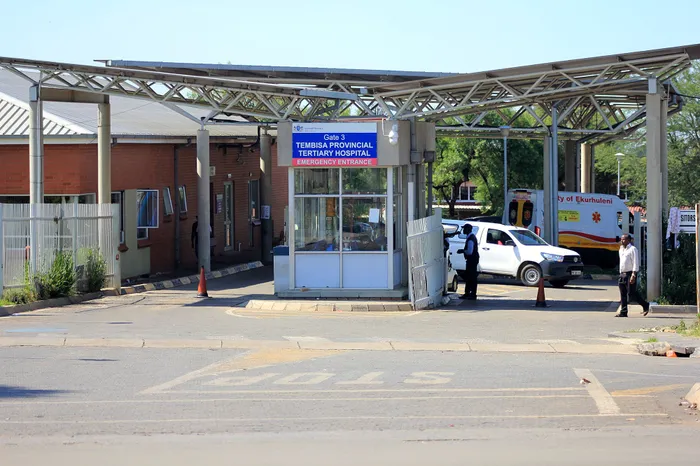
The Health Department says it is the Treasury's responsibility to blacklist the companies involved in R2 billion worth of corruption at Tembisa Hospital.
Image: Dimpho Maja/African News Agency(ANA)
The South African Department of Health is under fire for allegedly dodging its responsibilities in the aftermath of a massive corruption scandal at the Tembisa Hospital, in which over R2 billion is estimated to have been looted. Critics say that the department has fallen prey to criminal syndicates and cartels operating at both national and provincial levels, undermining public trust in its management of health resources.
The controversy escalated when Health Minister Aaron Motsoaledi revealed that the department had called on the Special Investigating Unit (SIU) to begin the process of blacklisting the 207 service providers implicated in the scandal. These companies reportedly executed trades under at least 4,501 purchase orders, many of which were flagged as irregular.
In a response to written questions from ActionSA MP Alan Beesley, Motsoaledi contended that the responsibility to blacklist these service providers ultimately lies with the National Treasury. However, Beesley countered that blacklisting should involve collective action from accounting officers, such as the CEO of Tembisa Hospital and the head of the Gauteng Health Department, as well as the Presidency.
Sandile Swana, a governance expert and political analyst, weighed in on the matter, suggesting that the health ministry's reliance on external bodies highlights a worrying trend: “The culture of blacklisting does not exist in South Africa," he stated. Swana believes that Motsoaledi's decision to shift responsibility serves as a means to deflect blame from potential political fallouts linked to criminal activities.
“This reinforces that accountability is missing from the culture of governance," he added. Although the law stipulates that accounting officers must report intentions to blacklist non-compliant companies, they also need compelling evidence to proceed, which has further complicated the process.
While National Health spokesperson Foster Mohale insisted that only the Treasury possesses the authority to blacklist non-compliant service providers, he acknowledged the necessity for thorough investigations prior to any such action. Following the whistleblowing by Babita Deokaran, who was assassinated in August 2021 after exposing the corrupt practices at Tembisa Hospital, Mohale stated that the Gauteng Department of Health has submitted a list of companies for blacklisting to the Provincial Treasury.
Deokaran's investigation revealed alarming irregularities that, until the SIU's findings, suggested only R850 million had been misappropriated at the hospital. The current estimate surpasses R2 billion, as the SIU uncovered extensive manipulation of procurement processes designed to bypass regulatory scrutiny.
The investigative report unveiled tactics such as avoiding tender processes, falsifying documents, and strategically keeping purchase orders below R500,000 — enabling crooked service providers to evade more stringent oversight.
The Public Servants Association (PSA) expressed outrage at the government's failure to blacklist the implicated firms, deeming it a "shocking lapse in accountability". It argued that the ongoing bureaucratic wrangling between the Health Department and the National Treasury has prevented decisive action and exacerbated public distrust.
Professor Andre Duvenhage, a political analyst from North-West University, condemned the absence of early involvement from law enforcement agencies, particularly given the serious implications tied to Deokaran's murder. He underscored the need for political will to effect change and to hold accountable those who exploit frameworks meant for better governance.
IOS